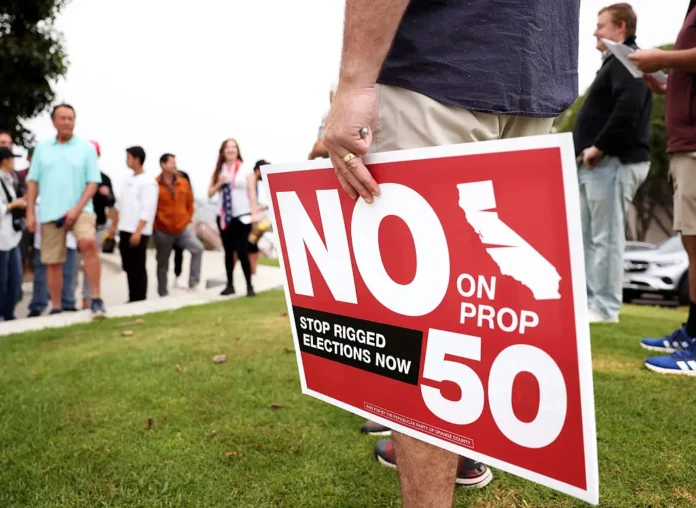By Kelly Were
A fierce legal battle over California’s political future has erupted just one day after voters approved a new congressional map, with the state’s Republican Party and a coalition of voters filing a federal lawsuit alleging illegal racial gerrymandering.
The complaint, lodged on 5th November, targets Proposition 50, a redistricting measure passed on 4th November that is projected to shift five House seats from Republican to Democratic control, effectively neutralising a recent Republican gerrymander in Texas.
The lawsuit contends that the newly drawn districts were deliberately engineered to prioritise race over traditional redistricting principles. The plaintiffs point to public statements made by the map drawers, which emphasised the goal of enhancing Latino political power.
“The map drawers explicitly stated their goal was to maximise Latino political empowerment, resulting in a racially motivated sorting of voters,” the court filing alleges.
This, they argue, violates the Equal Protection Clause of the 14th Amendment and the 15th Amendment’s prohibitions on racial discrimination in voting.
The legal challenge plunges California into the centre of the national redistricting wars, which have seen over 17 major court cases filed across the country since July.
Defenders of Proposition 50 vehemently deny the allegations, asserting that the maps are both fair and legally sound.
They maintain that the creation of certain majority-minority districts is a necessary compliance with the federal Voting Rights Act, which aims to prevent the dilution of minority voting strength.
Governor Gavin Newsom was swift and sharp in his condemnation of the lawsuit, stating, “This legally and morally bankrupt lawsuit is doomed to fail.
These maps are fair and comply with the Voting Rights Act.” The case immediately raises high-stakes questions about the fine line between permissible political gerrymandering and unconstitutional racial gerrymandering.
A ruling against the state could force another redrawing of the maps and alter the projected balance of power ahead of the 2026 midterm elections, ensuring that this legal fight will be a protracted and closely watched affair.



















